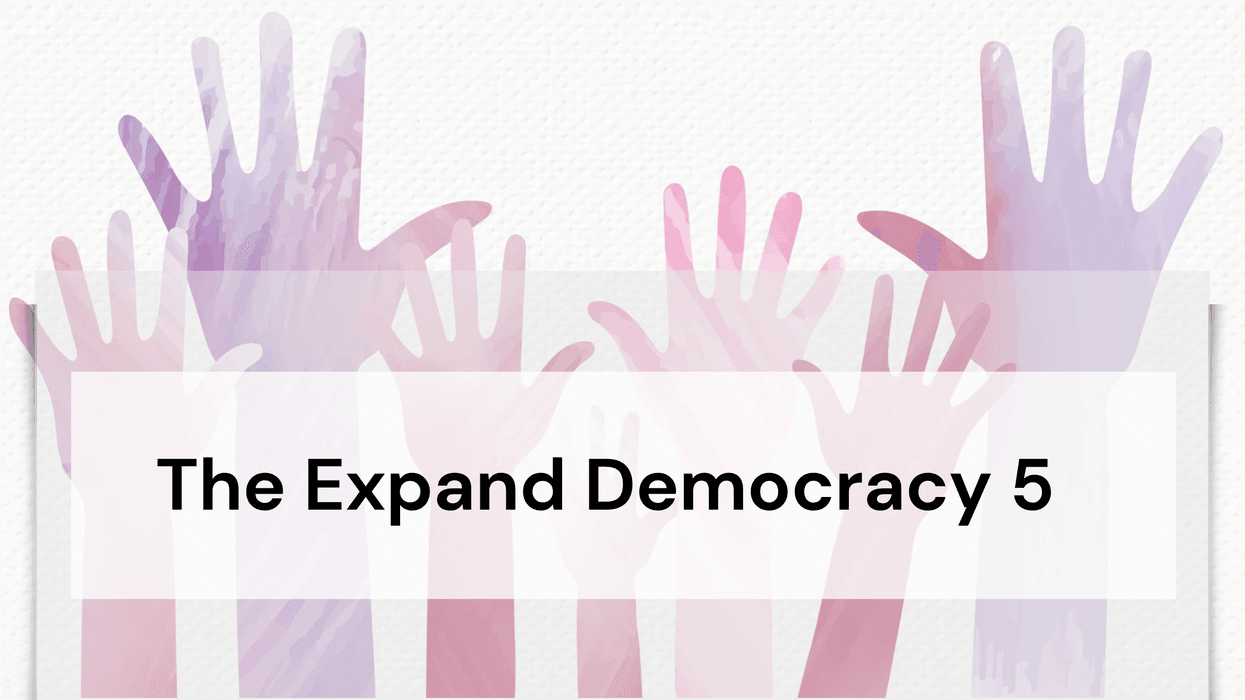Since the start of this semester, I’ve seen a disturbing rise in authoritarian behavior across the country. At the university where I teach, the signs have become impossible to ignore. The government has already cut a huge part of the Department of Education’s funding and power, pulling millions from important research.
This isn’t how most people imagine authoritarianism—it doesn’t usually show up with tanks in the street. It creeps in quietly: at school board meetings, through late-night signing of laws, and in political speeches that disguise repression as patriotism.
Let’s be honest—we are not approaching a crisis. We are already living through one. As a professor at a major public university, I’m scared—not just for higher education but for all public institutions that support our democracy and help people thrive.
Too many people still don’t see what’s happening or think it doesn’t affect them. But this isn’t paranoia. It’s a pattern. These aren’t random acts—they’re part of a larger plan to weaken the systems that hold democracy together.
And here’s the hard truth: we don’t need a violent coup to lose democracy. We can lose it through apathy, distraction, and silence. When people stop paying attention, when cruelty becomes normal, and when injustice is ignored, democracy fades away.
Sign up for The Fulcrum newsletter
In schools, teachers are being silenced. Books are banned. History is being rewritten. Programs that help make schools fairer and more welcoming have been gutted under the guise of fairness. But what’s really happening is an attack on the truth. The fear isn’t about indoctrination—it’s about people learning the real story.
The press is also under attack. Reporters are being discredited. Trusted news sources are being defunded. Facts are dismissed as fake news. This isn’t an accident—it’s intentional. When people stop trusting facts, they can be made to believe anything.
The courts have also been changed in dangerous ways. Judges who don’t reflect the people have been installed, and politicians are now ignoring court rulings. The law is used to protect the powerful—and ignored when it’s inconvenient.
Voting rights are under attack, too. Peaceful protest is criminalized. Communities of color are being targeted again and again. District lines are being drawn to keep some people out. This isn’t about protecting democracy—it’s about fearing the power of voters.
Science and knowledge are also being attacked. Even as we face a climate crisis, denial is being funded. Public health data, once trusted, is twisted for political gain. The war on truth is hurting us all.
We need to face what’s happening—clearly and honestly. Democracy doesn’t disappear overnight. It gets chipped away until, one day, we realize it’s gone.
Wole Soyinka once said, the greatest threat to freedom is the absence of criticism. Loving your country means holding it accountable—not staying silent. When the loudest voices are the cruelest ones, we risk losing the soul of the nation.
But we can do something. Each of us. Starting today.
You don’t need to be a politician to make a difference—you just need to show up. Speak out at local school board meetings. Help your friends and family register to vote and be persistent about it. Support independent journalism by subscribing, donating, and sharing reporting that tells the truth. Challenge misinformation wherever you hear it, even in everyday conversations. Join others who are organizing to protect democracy—join a union, support grassroots movements, and build collective power. Educate loudly: start a book club, host a teach-in, and create space for truth-telling. Don’t stay silent, because silence isn’t safety—it’s surrender. Vote like it might be your last chance, because every single election matters, and organize others to vote too.
This is our fight. We can still turn things around. But we can’t wait for someone else to save democracy.
If it’s going to be saved, we must save it—together. By standing up. By linking arms. By refusing to let it fall.
We’ve overcome hard things before. But we never did it by staying quiet. We did it because people like you decided it was time.
This is the fight of our time. And the time is now.
Dr. Anthony Hernandez is a member of the Teaching Faculty in the Educational Policy Studies Department at the University of Wisconsin—Madison, won a research award from the National Academy of Education/Spencer Foundation for his study of leadership in higher education, and has received four teaching awards from UW-Madison.




















